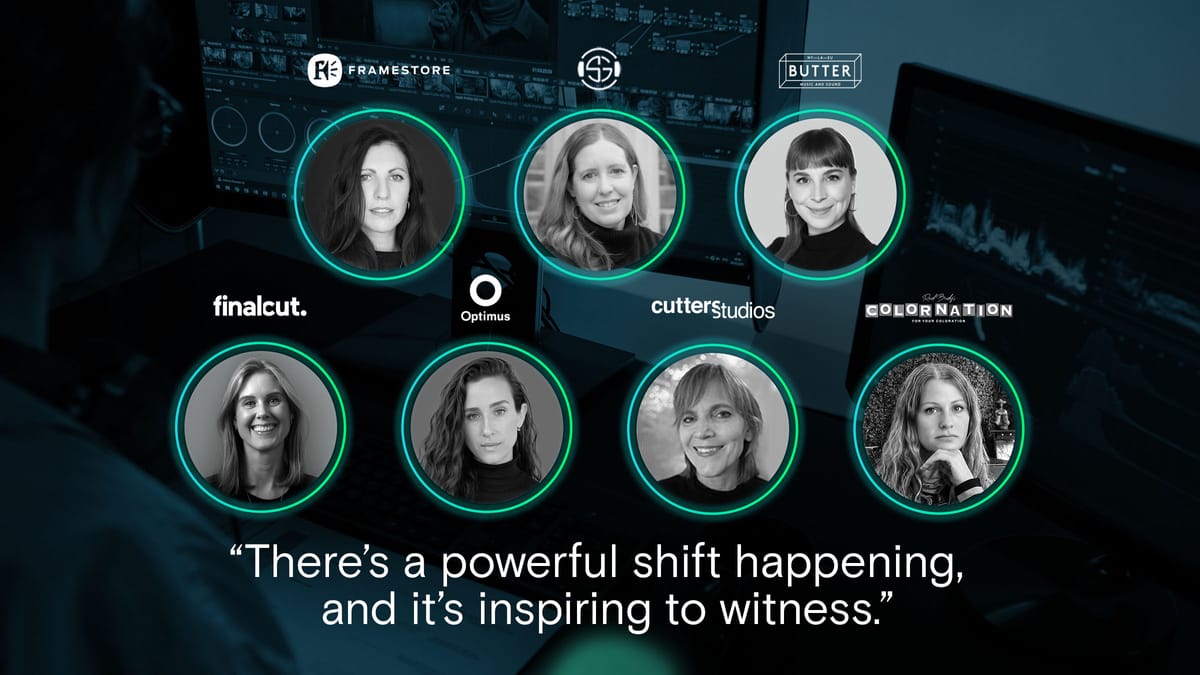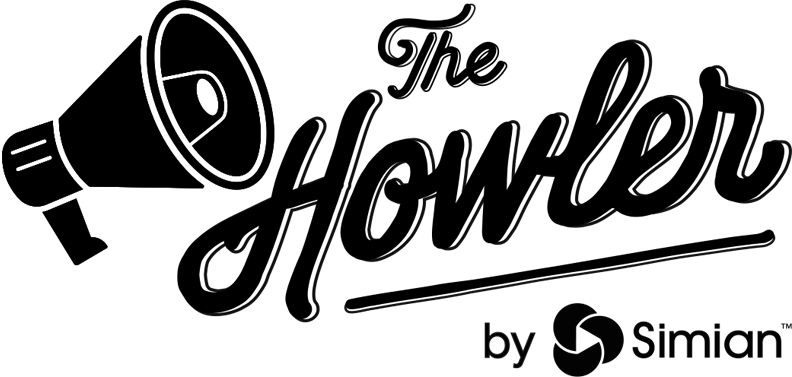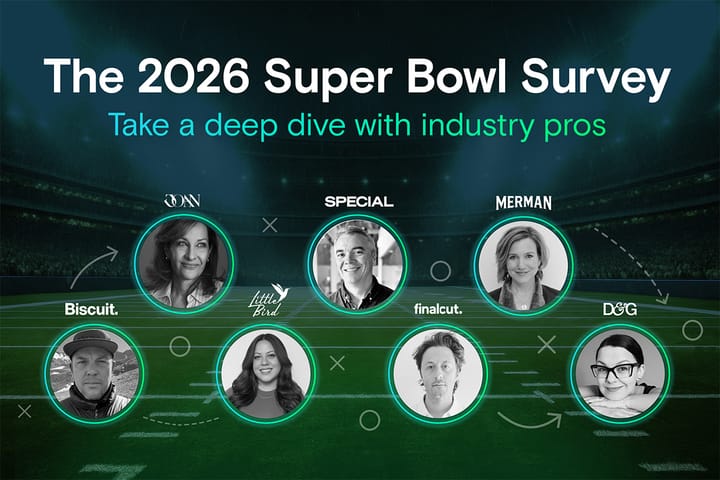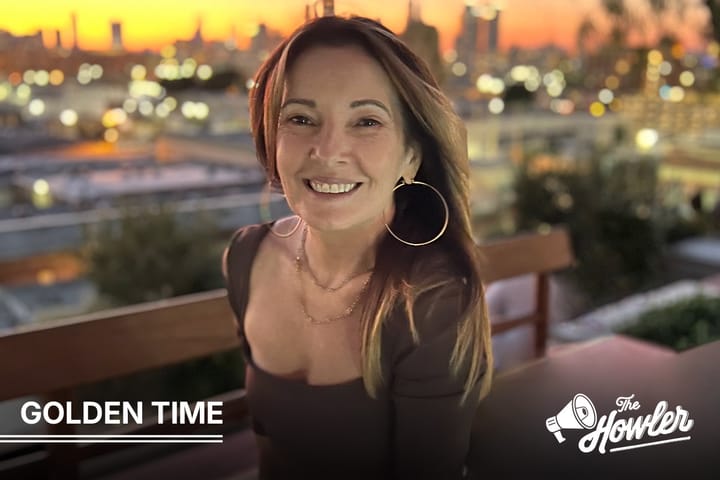Women in Post Production Talk Inspiration, Obstacles & Triumphs
The Howler turns to seven post production pros for insight on opportunities, challenges and the importance of making connections.

By Chandler Atton & Anthony Vagnoni
The role of women in the production and finishing of ad content is a subject that’s always of interest, whether we’re in the middle of Women’s History Month or not. As the industry continues to acknowledge women in key roles, both in executive capacities and as artists and makers, there’s still room for improvement, advancement and recognition.
With that in mind, The Howler asked a group of women across the gamut of post production disciplines to comment on a range of topics and issues, from the importance of community and sharing to the motivations for getting into post production roles in the first place. Our panel includes editors, EPs and representatives from visual effects, color grading and audio mixing. Let’s meet them.
Kathryn Hempel is an artist, commercial film editor, and VP/Partner of Cutters Studios whose work includes short and feature-length films and award-winning ad campaigns. She’s the creator and co-founder of Camp Kuleshov, the AICP’s annual edit, design, and sound competition for emerging artists. A respected presence in the Chicago ad scene, she exhibits her films and visual work internationally, leads up-cycled fabric painting workshops and has juried for the One Earth Young Filmmakers contest, the Clio Awards, and AICP Post Awards.
Editor Jenny Schaye started her career at Optimus over a decade ago. She’s worked on the Amazon Prime series “Top Class” and the Netflix documentary “Untapped,” and has edited commercials for clients including Mountain Dew, Walgreens, Harley Davidson, American Express, Whirlpool and more. A mother of two, she looks forward to showing her children that they can build a career doing what they love.
Independent colorist Heather Hay, represented by ColorNation, started her career at Brooks Institute of Photography in Santa Barbara, CA, where she honed her skills and passion for the industry. She then transitioned to film coloring at Avenue-Edit in Santa Monica, CA, before relocating to the Chicago office, where she further developed her expertise. After working in Australia, she’s now based in Mexico City, freelancing for clients worldwide.
Originally from Canada, BUTTER Music and Sound Executive Producer Renée Massé is a music industry veteran with a decade of experience as a producer and music supervisor. Under her leadership as Executive Producer out of New York and one half of BUTTER’s fully woman-led executive team, she has delivered original music, sync partnerships, and more with award-winning campaigns for Nintendo, Lay’s, State Farm, and Supercell, as well as the sonic branding for brands such as Discover, Mountain Dew, HelloFresh, and DSW.

Sarah Roebuck is the Managing Director/Executive Producer at Final Cut, where she leads the New York office. A Texas transplant by way of California, Roebuck’s almost three-decade career spans a diverse range of roles in the industry, from Producer and Director of Integrated Production Recruiting at JWT, to multiple EP roles at such companies as East Pleasant, Pleasant Post, and Imaginary Forces. She’s executive produced a number of award-winning campaigns, earning accolades at such shows as D&AD, AICP, Cannes Lions, The Clios, One Show, and Ciclope.
Framestore’s New York-based Creative Director and VFX Supervisor Vicky Osborn has over 20 years of experience covering the creative process from end-to-end. She’s worked on campaigns for household brands such as Accenture, adidas, Cadillac, Coca Cola and Sony, and alongside notable directors including Sam Mendes, Jonathan Glazer, Adam Berg, Noam Murro, Alex Turvey, and Terence Neale. Prior to joining Framestore, she spent 18 years at MPC, most recently as Head of CG in New York as part of the team that founded its Advertising division.
Senior Mixer and Sound Designer Hillary Kew Martell of Sound Goods is a veteran of the New York post scene, having worked at a number of audio post houses such as AudioEngine and Photomag, where she was able to mix and sound design many high-profile ad campaigns for brands like Coca-Cola (Super Bowl), Nike, Mercedes, Budweiser, Discover Card and many more. Choosing to step away from full-time mixing to focus on family life for a time, Hillary continued to flex her technical and creative muscle by working as a freelance engineer for a variety of projects from her home studio prior to signing on with Sound Goods.

Here's what they had to say:
Did you have any women mentors when you were coming up on the post ranks? What role did they play in your professional development?
Kathryn Hempel: When I was an assistant editor I did have the opportunity to assist and learn from Beth Dougherty Parker and Jeanne Bonansinga. Both women have a deep passion for the craft of editing and a strong dedication to their projects and the creative process. My Mom continues to be a mentor and has encouraged and influenced me in so many positive ways throughout my life.
Hillary Kew Martell: There weren’t really any other women ahead of me in my position as an audio mixer in the New York advertising world that I was aware of. The people I worked under from a technical standpoint were all men, however there were a number of female producers and managers who were incredibly supportive and who fought for me when I was just starting out. They recommended me for jobs and helped get my name out to new clients and just generally “had my back,” for which I’m very grateful.
Heather Hay: There are so many to choose from! I was raised in a small town in Texas, and the predominant belief and goal then was that a woman should be a stay-at-home and manage the household. My grandmother wasn’t even allowed to work. So when I came into post, I saw women in all types of roles: editors, producers, schedulers, assistants, really almost any position. Women would enter and command a room without apology. It was eye-opening, and I loved it. Every woman I worked with was a mentor in her own way.
Renée Massé: I’m very lucky to have been surrounded by amazing women who’ve supported me in this industry. During grad school at NYU for Music Business, I interned at Nettwerk Music Group’s New York office under two incredible women, Melissa Emert-Hutner and Karen MacMillan. Karen was the first person to expose me to the awesome world of sync. Once the internship was over, Karen assisted in connecting me with opportunities and educating me about the industry. It’s thanks to her that I landed my first full-time job at Headroom, where I met more incredible women, like Deb Oh and Theresa Notartomaso. And here at BUTTER, I’ve been so lucky to have Annick Mayer, our West Coast EP, as my counterpart.
Sarah Roebuck: Without question, Stephanie Apt was my greatest mentor. She was my very first boss on the agency side, and has remained a guiding force throughout my career. When I graduated from college I was fortunate enough to work under her guidance. Fast forward to 2016, almost 20 years later, and she hired me again to be the EP at Final Cut. Having worked across the production company side, the agency side, and the post side, I can honestly say Stephanie taught me everything I know. She’s one of the sharpest, most driven individuals I’ve ever encountered. Her work ethic, her brilliance, and the personal support she offered were invaluable. As a working mother herself, she truly understood the balance it required, and that insight meant the world to me.
Vicky Obsorn: I started as a CG artist in London back in 2001 and at the time there were very few women working in this area. The ones I did meet were mostly producers, and I certainly learned a lot from those that were further along with their careers about how to progress in the industry and balance work and life. Most of my mentors in CG ended up being male colleagues by necessity, but they did support my learning and career progression in significant ways, so I’m very thankful for that. Since joining Framestore I’ve been very inspired by the amount of female leadership within the company, and am very glad to see this as an example to a younger generation of artists and producers starting out in post production.
Jenny Schaye: One of the editors I assisted was a true mentor to me. She maintained high standards and was unafraid to point out areas for improvement, which significantly enhanced both my skills and confidence. Unlike other editors, she actively sought to provide me with valuable editing opportunities, fostering my growth in the field. I am deeply grateful for her mentorship, as working with someone who believes in your potential and invests in your success has a profound and lasting impact.
Similarly, how have you approached serving as a mentor to younger women coming up now?
Sarah: Mentorship is an essential aspect of leadership, and anyone in a leadership role is, by default, a mentor to those around them, regardless of gender. We have a responsibility to guide the next generation, and it should be everyone’s goal to give those who follow a better experience than you had. It’s important that we actively create opportunities for others, especially for women, to thrive. Even though we went through it one way, that doesn't mean the next generation should endure the same barriers – it’s our duty to smooth the path for those we work with currently and those who come after.
Kathryn: I try to connect with all my colleagues by learning from and listening to them as well as sharing whatever applicable teaching experiences I have had, including sharing my mistakes. I also try to have a fairly healthy work-life balance. Growing up at Cutters, and assisting Tim McGuire and Chris Claeys, I witnessed the importance of taking care of your family in addition to looking out for your work family.
Hillary: I don’t know how much I’ve really helped younger women, but having stepped away from my career for a number of years to spend time raising a family, I came back to see a larger number of women mixing, which is amazing. One thing I’ve tried to do is to remind myself that I don’t need to apologize for having family responsibilities. Men often get congratulated for taking time away to care for a sick kid or leaving early to get their child to baseball practice, while women get labeled as unreliable and unfocused for doing the same things. I hope that if I don’t play into the stigma, it will lose its power over how women are seen in the workplace. I’m done apologizing for myself and I hope women feel more free to allow themselves to be seen in all dimensions.
Heather: I’m very accessible and open to others in the industry. I frequently have relatively new women reach out to me, whether to schedule meetings or pick my brain about the industry and our craft. I genuinely enjoy these conversations, as they offer a chance to share insights and support the next generation of talent.
Renée: I’ve participated in the SXSW Mentorship program in the past, and was also part of the Women in Music board for several years, in charge of creating events and opportunities for women to network within the space. And at At BUTTER, we facilitate paid internship programs where we support young emerging talent. When the pandemic hit, we held “syncubators” for young women composers. This consisted of multi-week seminars focusing on the ins and outs of composition for advertising. At BUTTER, we’re also always looking to engage and foster women composers for our original music work, especially given the number of male composers working in advertising.
Vicky: When I moved to New York, in my role as Head of CG at MPC, I was responsible for hiring some of our CG staff and made a conscious effort to make sure we had as much female representation on our team as possible. Over the years I’ve seen a big increase in the number of women studying and working in CG, and that’s something we need to continue to nurture and support. I think women can often bring a different sensibility to their work and it creates a very well rounded creative outlook to any team.
There’s a very robust mentorship program in place at Framestore, where I’m now a Creative Director, and I’m currently mentoring a female colleague in London. I’d love to continue and expand on this, as I still see that there are less women in creative leadership roles than men, and I want to be part of changing that.
Jenny: Because of the impact my mentor and other women in post production had on me, I’m committed to paying it forward by supporting and mentoring talented young women as my career progresses. I see this not only as an opportunity for my own growth, but also as a chance to uplift my assistant and others who come after me. I keep this at the forefront of my mind, knowing that without the guidance and support I received, I wouldn’t be where I am today.
For you personally, what were the biggest obstacles in getting to where you are today with your career? What do you feel have been your greatest achievements?
Jenny: My biggest obstacle was overcoming imposter syndrome. I constantly felt like I didn’t know enough, and feared that I would eventually be “caught” as someone who didn’t belong. Over time, I’ve come to realize that this is a common experience for many professionals, especially women. It took years to overcome, but I no longer feel that way. Now, I approach each project with confidence, knowing that I am skilled at what I do and that I deserve to be in this role.
Some of my greatest achievements include seeing my work featured on platforms like Amazon Prime and Netflix, something that once felt very out of reach. However, what I am most proud of every day is balancing motherhood with my career. It’s not easy, and some days are more challenging than others, but finding that balance and working hard to be successful in both of my roles is something I take pride in.
Renée: I’ve been lucky to be part of small teams with lots of autonomy, but I’ve also always had to hustle. Without a large internal team, I’ve had to learn through industry mentors and supporters to pave my own path. It’s sometimes difficult when you have to learn for yourself how the industry works and your role within it, especially as a young professional working at a high level within a company, but it also forces you to ultimately trust your instincts. A huge achievement for me was getting the opportunity as a manager to hire my entire production team; having that experience and working in this executive producer role, was always a goal for me. Getting there - while fighting imposter syndrome and other industry uncertainties - made the wins all the more reassuring.
Vicky: I think for me, I enjoyed the work much more when I gained the confidence to talk about it with others on the team. When you start to worry a bit less about criticism and embrace the path to making your work as good as it can be, you gain a lot more creative freedom. My path has gradually led me away from working on my own on individual shots and instead being responsible for planning entire projects. It took a little while for me to get on set as a VFX Supervisor and now Creative Director, but this has ended up being a part of the job that I enjoy the most. The chance to work on high profile jobs with interesting directors has kept my job enjoyable and compelling.
Kathryn: It isn’t easy to be considered to edit certain projects or genres when you don’t have an example of that type of work on your reel, or you don’t have a relationship with the creative teams making the hiring decisions. Some of my greatest career highlights have been developing lifelong friendships, starting with Camp Kuleshov, which is the AICP editing, design, and sound competition formerly known as Trailer Park, and editing Always’ “Like a Girl” spot.
Hillary: I’ve been very lucky that I haven’t really faced a lot of obvious obstacles, however I do feel I had to fight at times to get taken seriously. When clients would come into the room for a session, I’d often get mistaken for the client services person or an assistant. I always enjoyed breaking the news to them that I was their engineer. It felt good to burst their assumptions a little.
Of all the things I’ve accomplished, one thing I’ve recently felt really good about is recognizing how far I’ve come in my self-confidence. I think a part of that just comes with age; I care a lot less what people think of me than I used to, and it’s pretty liberating. As a result, I find myself being able to contribute more creatively and communicate when I disagree, allowing us all to collaborate more and ultimately end up in a better place than we would have if I hadn’t contributed.
Heather: I started at a time when there were few female colorists, and I did find it challenging for my male counterparts to take me seriously. However, I had a boss who believed in me. I was tasked with upgrading our color suite from a linear workflow, telecine to tape, to a nonlinear workflow. I researched, brought in vendors, and selected a new system. This was a significant challenge, as I was comparatively new to the field. That remains my greatest achievement, both personally and professionally.
Sarah: I’ve been fortunate to have an incredible list of mentors who not only guided me but also fought for me and others to have opportunities to prove ourselves. The key was seizing those opportunities and making the right career decisions at pivotal moments. Perhaps that doesn’t answer the question regarding "obstacles," but the decisions that required perseverance and the willingness to continue being curious felt more like a challenge with rewarding outcomes. As for my greatest achievements, I would say that it’s the relationships I’ve built, the trust I’ve earned, and the work I’ve contributed to in post production. Those things stand as true markers of success for me.

How do you feel about the future for women in post production roles? What kind of industry will they face as technologies such as AI rapidly change the way work is executed and delivered?
Vicky: The industry is changing, as it always has. As more AI tools are introduced that can speed up and automate repetitive tasks, the importance of understanding how to make your work great is more important than ever. I think embracing these tools can teach you a lot about how to be a better artist and how to recognize mediocre work versus exceptional work. Developing your skills and your eye as a creative in this industry is still the most important thing, but how you get there will continue to change.
Renée: I’m definitely seeing more women in the space, and feeling the emphasis by companies by making sure there is more equal representation. It’s not happening overnight, but moving slowly and surely. I definitely sense more community spaces for women, and am beginning to see more examples of women praised and supported in the industry.
You do have to stay on top of technological trends and learn how to adapt to them as they relate to you. That said, I hope that AI can help with time-consuming tasks and free artists to have more room to be creative – something humans are already great at. And with AI, there are now so many legal ownership implications that I also want to help educate female composers and musicians about their ownership rights, empower them to hold onto their IP and copyright, and set themselves up for long-term success.
Sarah: I’m optimistic about the future for women in post-production. Having been part of panels, such as at the Gerety Awards, I’m continually inspired by the women who’ve excelled in breaking down barriers in our field. When I first joined Final Cut, I was amazed by the number of women on the roster, and that continues to inspire me.
Kathryn: On the upside, there might be time-saving efficiencies with new technologies such as AI that will benefit everybody. We’re all better served when we mentor, hire, and promote those who are underrepresented in our industry to work in a multitude of positions, including post production and in the development of AI technologies. It will expand our worlds and minimize biases and gender stereotypes if we have a variety of viewpoints and storytellers.
Hillary: I’m very encouraged to see more women becoming successful in the post production industry year by year. I feel diversity will only continue to grow as the field progresses. It’s hard to say yet how AI is going to change the industry, but it’s certain to have a profound effect. I believe there will always be a place for human creativity and empathy that AI will not make obsolete. I hope that it simply becomes one more tool we can use to create beautiful things, just more efficiently and more effectively.
Heather: In my experience, women are particularly well-suited for adaptability, as it’s part of our nature. With information on advancements and changes so readily accessible these days, it’s become relatively easy to stay updated on developments. I’m seeing more and more women emerge as new directors, colorists, editors, producers, and leaders in every role within the industry. While women have always had a strong presence in recent years, we’re now stepping out of the shadows and confidently claiming our space. There’s a powerful shift happening, and it’s inspiring to witness. As the saying goes, “If women knew their power, they would rule the world.”
With the advancement of technology, including AI, the industry will undoubtedly shift, but women will remain integral to that change. Whether it’s in logistics, creative collaboration, or overseeing the editing process, women’s voices and skills will continue to be valuable. I would love to see more women enter tech-focused areas of post production, and remain confident that we’ll see more women embrace and lead in all areas of the industry as technology progresses.
Jenny: The impact of AI on women in post-production will likely be both positive and challenging, depending on how the industry adapts. On the positive side, AI can streamline tedious tasks, allowing editors and post production professionals to focus more on creativity and storytelling. This could open up new opportunities for women to take on leadership roles and push creative boundaries.
However, there are challenges as well, particularly in ensuring that AI tools are used to support artists rather than replace them. As with any technological shift, there’s a risk of job displacement if companies prioritize automation over human expertise. Ultimately, the key to a positive future will be continuous learning, adaptation, and advocacy for fair industry practices that value human creativity and a diverse workforce alongside technological advancements.



